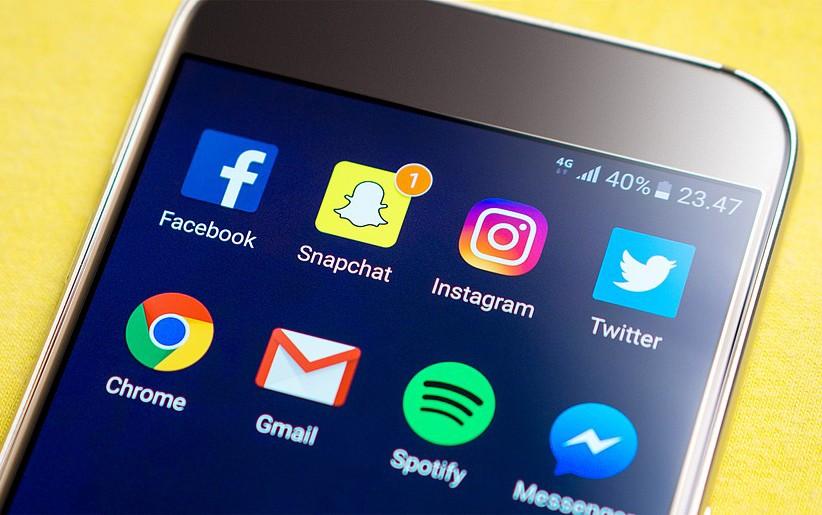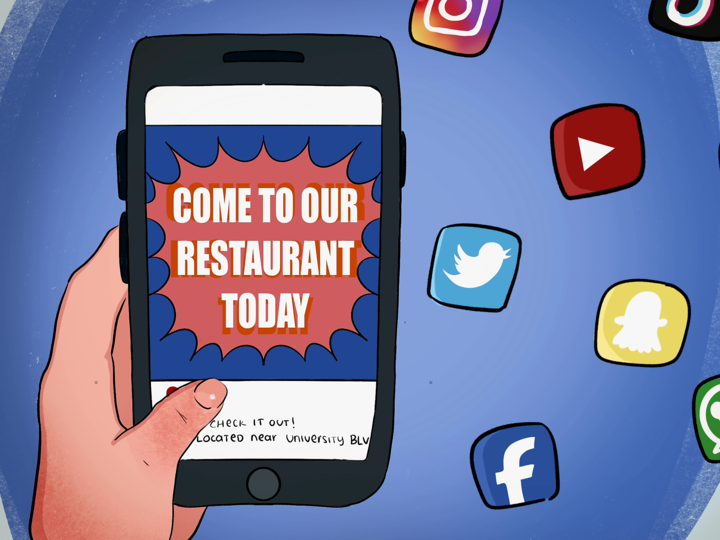Marisa Latzman
If technology is akin to an extremely addictive drug, then the process of withdrawal is nothing short of harrowing.
I’m the last person to ever want to group myself into the technology-obsessed teen category, but maybe I don’t have a say in the matter. It almost appears as if neither me nor the rest of the people residing in the age of the internet know the extent of their smartphone usage in all its glorious, glowing excess, let alone the extent of how much it holds us back. In some ways, it’s taken away our free will. Even if we wanted to give them up and start a new technology-free life, we probably couldn’t. Our actions no longer reflect our desires.
Smartphones, computers, tablets, etc. are revolutionary in that they have shaped the way that the members of the human race interact with one another. As a result, our world has become smaller and less mysterious, and we have come to believe that there is no possibility of a normal life without these handy gadgets. The relinquishment of our beloved contraptions would likely leave us feeling embarrassingly behind on current events and gossip. Smartphones are not just parts of our lives, but the entirety of them. Everything we need and want is within their beautiful yet fragile glass screens: banking, stocks, phone, calculator, camera, email, music, shopping, family updates and more. It’s almost as if the abandonment of our phones would entail the abandonment of our lives. We’re not just hooked to these devices because we think it’s fun to tweet and text and send funny pictures to our friends on Snapchat; we’re hooked to these devices because our lives reside in them.
RELATED: Native American Heritage Month begins with a kickoff from NASA
How did we let it get this way? Is it possible that we’re just empty-minded consumers vying for some kind of Jetsons-like future, completely oblivious to Silicon Valley’s probable master plan of world domination via complex technological advancements? Or are we just, as human beings, partial to things that allow us a better grasp on daunting concepts that may otherwise be too grandiose to tackle?
I’m sure you’re familiar with the classic “when I was your age” diatribe. Individuals who grew up during a time in which emails and social media were unfathomable concepts have a tendency to argue that a lack of technology in the past did not negatively affect them. I cannot fathom a more irrelevant and careless argument. Children in the 1950s, for example, never knew technology in the way children nowadays do. No man, woman, or child was ever armed with little square devices and high-powered thumbs, both probably bound to cause some weird evolutionary trait in the near future. The lives of adults were not confined to technological devices: they went to banks for their banking, used telephones to make calls, wrote letters instead of sending emails and obtained their news via radio and TV programs or newspapers.
It’s not like we can’t do any of that stuff now, but it’s turned into one big game of catch-up. We are constantly trying to one-up the generations before us, parading our technology around with gratuitous pride. And we must not forget to make everything easier. After all, the less work, the better.
We certainly have come such a long way with technology that even someone from 40 years ago would be mind-blown. We have proven our technological prowess time and time again. To strive to be better than those before us is not a new phenomenon.
But now, it appears as if we’re less human than ever before. Have we crossed a line? Is there even a line at all?
RELATED: Column: Life without a smart phone
Alec Scott
There have been very few things throughout history that has become so ingrained in our day-to-day life so quickly and so powerfully as smartphones and the internet. It’s gotten to the point where going a single day without a phone or one night without WiFi is enough to make someone go insane. The Pew Research Center published that, in 2015, 9 in 10 Americans have some kind of a cell phone (up almost 30 percentage points in 11 years), with about 7 in 10 owning a smartphone. Today, 86 percent of people ages 18-24 have smartphones. Internet usage has followed a similar skyrocketing trend since 2000, climbing from 50 percent at the beginning of the polling to 89 percent in 2018. That means that America today is vastly more interconnected and reliant on media of communication, information acquisition and entertainment that were peripheral just several decades ago.
Because the rates of smartphone possession and internet use are even higher among the younger generations, this seems like an irreversible trend that will be here to stay. Our incredible reliance on technology in our daily lives has to be tempered by an ability to unplug, decompress and re-orient ourselves in a world that is changing very rapidly. If that means turning off your smartphone every once in a while or just going on a walk instead of getting back on Instagram for the fifteenth time today, so be it. Technology is an incredible gift that allows instantaneous access to information and makes us closer with loved ones and total strangers from around the world. However, we can’t let devices be the only way we interact with the world around us, or else we could lose it all at a drop of a hat.
RELATED: TOPIC OF THE WEEK: Will the Honors Village be too exclusive?
Ariday Sued
I agree with Marisa that it appears that we are less human than before. However, I do not know what I would do without technology. I rely on it for everything I do. I do believe that technology has had a positive effect on our lives. Because of the advancement in technology, as a society we are able to connect with people from anywhere in the world in real time. That is absolutely amazing! Before, people had to rely on once-a-day newspapers for what was going on in the world, and now up-to-date news is always at our fingertips. Social platforms have also allowed us to unite together as a country for causes we believe in, to sympathize in crises and to help causes across the country. Speaking from my own experience, thinking about the effects of technology in my life is rather positive. Being able to video call my family back home on the east coast in real time is truly special to me and I am not sure how I would survive without being able to do so.
Alexis Richardson
When you are part of a military family, communication is key to maintaining balance and sanity during times of separation and stress. The ease with which we communicate with absent friends and family has been aided enormously by the evolution of technology.
In an age of instant gratification via texting, Snapchat and WiFi, it is often easy to forget that we have only recently moved away from dial-up internet, pay phones and postal service mail. That’s not to say these don’t exist, but they’re not as prevalent as they were twenty years ago. Just thirty years ago, when my aunt and uncle were fairly new to military life, they relied on paper mail to communicate. Even fifteen years ago, when my dad was deployed, we relied on the occasional phone call. When I was in high school, technology allowed us to graduate to instant messaging and video chats. Children now have the opportunity to recognize their parents, rather than seeing them as strangers, significant others can share good news more quickly and friends can keep in touch even oceans apart. Technology has been a blessing for military families, helping us to maintain connections.
RELATED: Opinion: Freeing yourself from social media
Anika Pasilis
I had no interest in this topic of the week when it was first proposed. That is, until I was without a phone for a week. I can say now, it was the most frustrating week of my college career.
Whenever I was bored in between classes or on my way home, I would automatically reach into my backpack for my phone, only to find it was not there. Logging into D2L and UAccess was impossible without a phone (with the new Duo Authentication).
I found myself getting so unnecessarily angry about minor things. I saw everyone around me happily on their phones. Then, I realized how much of a drag not having technology is in modern American society.
It brought me back to middle school, when we all had lousy disposable flip phones and passed notes in class. They were not necessary back then.
That was less than a decade ago. It is humbling to think of how far technology has come, and how it makes our lives more convenient.
Technology has affirmed its grip on the rest of the world, too. According to a United Nations report, more people have access to mobile phones than toilets. Can we ever really get away from technology?
RELATED: Living with no internet; an interesting adventure
Toni Marcheva
Avoiding technology is possible. I am in the six percent of people ages 18-24 who do not own smartphones. I would guess most of us are in this statistic because we want to be.
Believe me: not having a smartphone can be inconvenient. Professors expect we all have smartphones and assign work accordingly. Some services (like Venmo) are leaving their desktop platforms and switching to mobile-only services. I get lost while driving, and I need to physically ask for help. I sometimes get left out of event invitations, and I’m left out of the loop on what people are up to.
None of these inconveniences cause us to “need” a smartphone, despite what many people my age would say.
Many people cannot comprehend why I would choose to live without a smartphone. If I thought I was better off with one, I would have one. However, I feel so free without one — free to be alone, to see the world, to be in my own thoughts, to communicate and work only when I want to. My communication and time with people must be genuine.
Smartphones are a good tool, but they can too easily become more than that. The adventure of life is around you, not in your hand.
Follow the Daily Wildcat on Twitter









